15 Scholars from All Three Public Universities in Arizona Selected as Inaugural Cohort of Indigenous DataSET Fellows
Those selected to participate will engage in a year of Indigenous Data Sovereignty and Indigenous Data Governance training. The cohort will also play a role in a US Indigenous Data Sovereignty and Governance Summit in Tucson in April 2024.
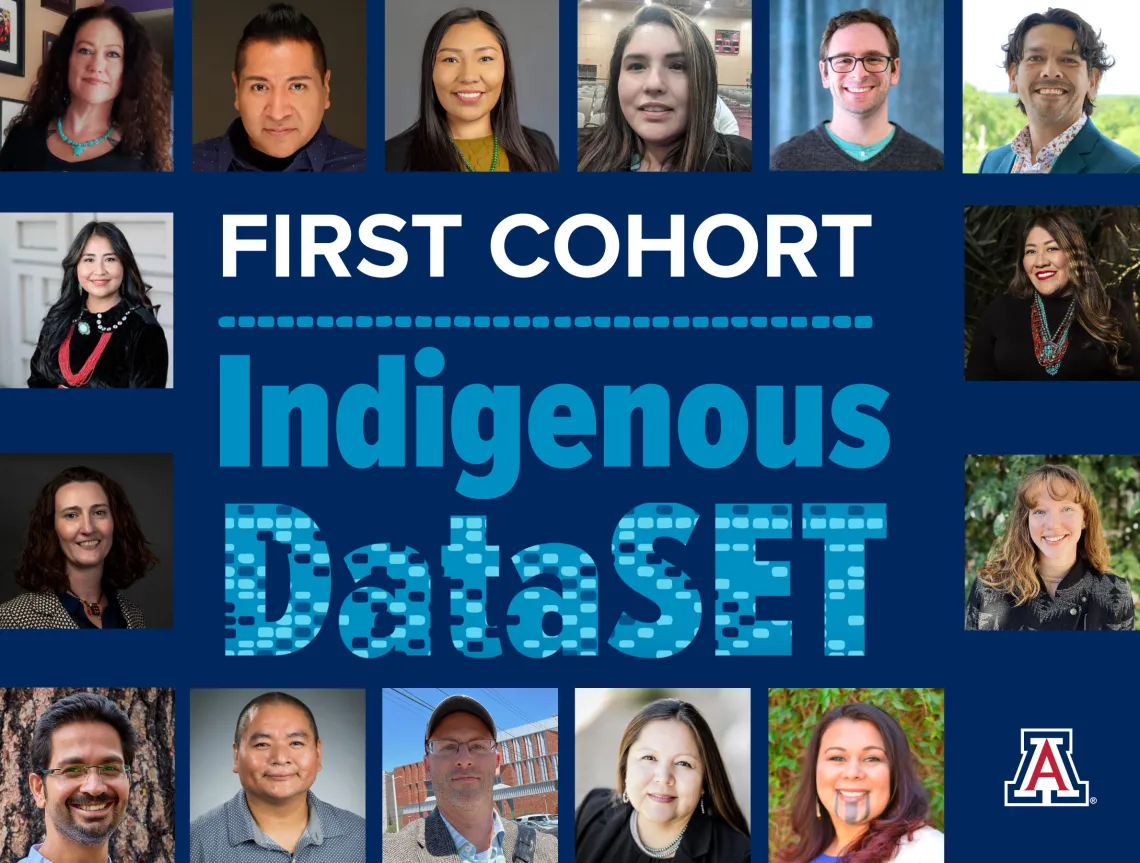
Research that depends on the traditional and contemporary Knowledges, biological and genetic information, artifacts and other forms of data long-stewarded by Indigenous rightsholders has been the object of a fraught and oftentimes one-sided relationship between the Indigenous partners, participants and contributors to those research projects and the academics on the receiving end of that data and knowledge.
Researchers in the modern Indigenous Data Sovereignty (IDSov) movement assert that research practices centered on Indigenous Peoples and Knowledges have been largely extractive in nature for centuries, meaning that those data are collected and disseminated without being shared with, returned to or providing any benefit to the Indigenous Peoples that contribute to those projects, and largely do not allow Indigenous Data Governance (IDGov).
In some cases, data are not only extracted without providing any benefit to the Indigenous partners and participants involved in the work, but they are also leveraged or published in a way that actually causes harm to Indigenous Peoples, individuals and communities.
The Indigenous Data Sovereignty and Ethics Training (Indigenous DataSET) Fellowship, funded by the National Institute for Health through the American Indian Research Centers for Health at the Inter Tribal Council of Arizona, was created to help combat exploitative research practices in Arizona and to ensure that the inherent rights surrounding governance of Indigenous data remain with Indigenous rightsholders.
Stephanie Russo Carroll (Ahtna; citizen of the village of Kluti-Kaah), Associate Director of the Native Nations Institute, a program of the Udall Center for Studies in Public Policy, and Associate Professor at the Mel and Enid Zuckerman College of Public Health, is leading a small team of IDSov and IDGov experts to develop and implement the Indigenous DataSET program for early career faculty across the state of Arizona. The program recently selected its first cohort of 15 professional researchers from Arizona State University, Northern Arizona University and UArizona.
Fellows selected to participate in the program will engage in a year of IDSov and IDGov training which will culminate in a national conference in the spring of 2024.
“As an Indigenous-led and designed program, the Indigenous DataSET Fellowship seeks to strengthen relationships among junior Indigenous and allied scholars with their Indigenous partners and research institutions to advance Indigenous Peoples governance of and access to research and data,” Carroll said in a written statement.
Carroll says that the program aims to help increase knowledge of IDSov and IDGov principles amongst researchers in the state and to ultimately see that those principles are encoded as standards by funders and supporters of research practices and even as policies and laws at the state and federal level.
“I am excited to build a larger community of action within the state of Arizona that reflects and celebrates our expertise, responsibility and innovations toward Indigenous self-determination,” says Carroll of the induction of the program’s first cohort of fellows.
Learn more about the impressive team of scholars selected for the program’s first year below.
Meet the 2023-24 Indigenous DataSET Fellows
Arizona State University
Matt Ignacio (Tohono O’odham)
Assistant Professor, School of Social Work (Tucson Campus)
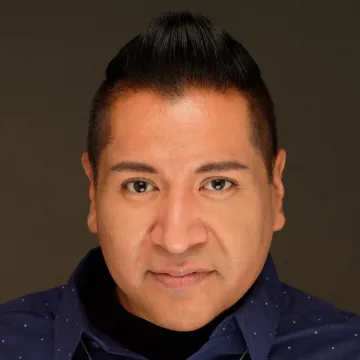
“Long term, I hope to collaborate with all AZ tribes, to produce high quality and culturally respectful health-related research data that is beneficial to communities. This program will offer education, knowledge, and support around research ethics and practices, specific to Arizona, that I will use throughout my career.”
For over two decades, Dr. Ignacio has worked nationally to address issues of health and justice, harm reduction, mental health, and culturally grounded interventions among Indigenous people and communities. He received his Ph.D. in Social Welfare from the University of Washington in Seattle, his Master of Science in Social Work from Columbia University in New York City, and his Bachelor of Arts in Sociology from the University of California in Santa Barbara.
Darryl Reano (Acoma)
Assistant Professor, School of Earth and Space Exploration
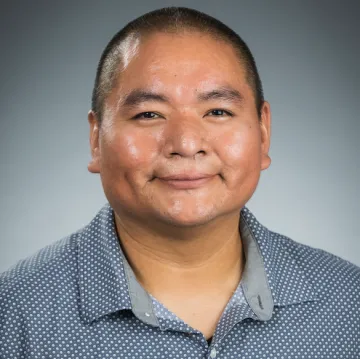
“The Indigenous DataSET program is important because it will help researchers think about how rigorous research can be designed in alignment with Indigenous community cultural values. I was motivated to participate in the program because the leadership team seemed to be predominantly Indigenous—this often leads to more authentic discussions that are informed by nuanced Indigenous contexts.”
Dr. Reano is a geologist and geoscience educator from Acoma Pueblo, New Mexico. His research is focused on supporting the development of inclusive educational environments using Indigenous research frameworks.
Amanda Tachine (Diné/Navajo)
Assistant Professor in Educational Leadership & Innovation
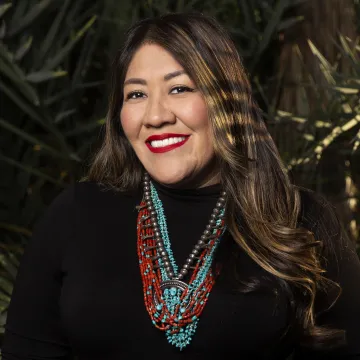
“I aspire to equip Native Nations in Arizona and beyond with the tools necessary to be a viable voice for Native education. Participating as an Indigenous DataSET Fellow is a dream come true to help me serve Tribal communities by asserting Indigenous data sovereignty for our futures.”
Dr. Tachine hails from Ganado, Arizona on the Navajo Nation. She is Náneesht’ézhí Táchii’nii (Zuni Red Running into Water) born for Tł’ízí łání (Many Goats). Amanda’s research explores the relationship between systemic and structural histories of settler colonialism and the ongoing erasure of Indigenous presence and belonging in college settings using qualitative Indigenous methodologies. She is the author of the award-winning book, Native Presence and Sovereignty in College: Sustaining Indigenous Weapons to Defeat Systemic Monsters and co-editor (alongside Z Nicolazzo) of Weaving an Otherwise: In-relations Methodological Practice.
Northern Arizona University
Candi Inez-Cipactli Corral (Cahita, Tahues, Mexica)
Assistant Teaching Professor, Ethnic Studies

“As a Xicanx, indigena, I am excited to participate as an Indigenous DataSET Fellow because it compliments my life-long commitment to decolonial research and activism. I was also motivated because this important, collective work will contribute to healing and building relations around practicing Indigenous research as sacred, ethical science.”
In addition to her Ph.D. in Political Science, Dr. Cipactli Corral is also Death/Grief Doula Certified. Her current project focuses on the revolutionary strategies implemented by Indigenous, working-class people in Ecuador and Venezuela fighting for sovereignty over land. Her lived experience as a Brown Beret activist from a family of migrant miners led her to work with Curanderismo, revitalizing her indigenous language (Nahuatl) and sustaining her traditional medicine and maiz/cintli. She has published research for the Center for American Indian Resilience based on Community-Based Participatory Research to promote a justice-oriented approach to health and wellness among Indigenous in Arizona.
Justin Lund (Diné/Navajo)
Postdoctoral Scholar, Department of Anthropology
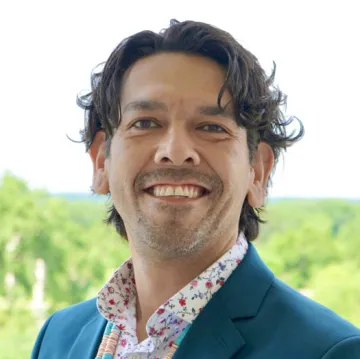
“Empowering Tribal sovereignty is the key to equitable futures and I believe that coming together as Indigenous scientists to learn and explore data sovereignty and governance will allow us the space to share our experiences, grow together and return to our communities with renewed insights.”
Dr. Lund is a molecular anthropologist with a research focus in human microbiomes, ethics in research and Indigenous methodologies whose work has centered on Native American experiences and uplifting Tribal sovereignty. His portfolio of work experiences also includes Southwestern archaeology, Indigenous futurisms, and qualitative inquiry. At NAU, Dr. Lund is establishing his genomics lab that will center Indigenous perspectives and community collaboration.
Seafha Ramos (Yurok, Karuk, Chicana)
Assistant Professor, School of Forestry
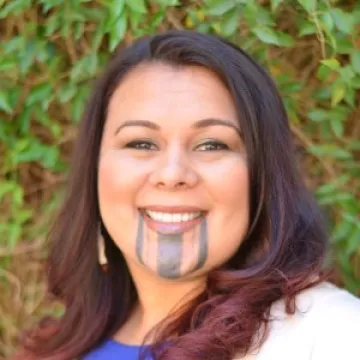
Dr. Ramos joined NAU in January 2023 upon completion of a National Science Foundation Postdoctoral Fellowship in Biology. She has forged a multidisciplinary pathway with the goal of conducting culturally sensitive wildlife research with Indigenous communities. In her applied approach, she brings together Indigenous Research Methodologies, Traditional Ecological Knowledge (TEK) as Indigenous science, and conventional “Western” science such as molecular scatology. She is a TEK practitioner and credentialed level II Yurok language teacher, integrating language in her work as a component of TEK.
Pranay Ranjan
Assistant Professor, School of Earth and Sustainability
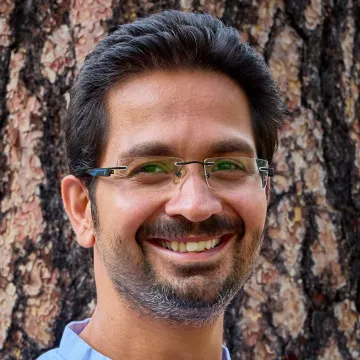
“Helping center the voices and lived experiences of Indigenous Communities, and honoring their right to freely pursue their economic, social, and cultural development are why this program is important and why I decided to participate.”
Dr. Ranjan is an environmental social scientist with interdisciplinary training in institutional analysis, collective action, water governance, environmental policy, natural resource management and action research. He conducts research that helps build theory, while contributing to policy and practice. He holds a Ph.D. in Environment and Natural Resources from the Ohio State University and a Masters in Environmental Studies from TERI (The Energy and Resources Institute) University.
Ariel Leigh Roddy (Sault Ste. Marie/Ojibwe)
Assistant Professor in Criminology and Criminal Justice
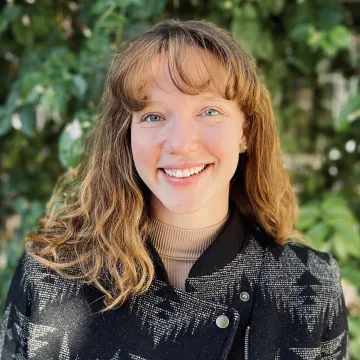
“Indigenous data sovereignty is a critical extension of tribal sovereignty that is often overlooked. I am participating in the Indigenous DataSET Fellows Program to better prioritize the needs of Native communities in future research, and to strengthen the rights of Indigenous peoples.”
Dr. Roddy’s research uses a feminist lens to examine barriers to reentry for individuals in the justice system. She also studies the effects of culturally relevant treatment for Indigenous individuals in recovery from substance use and opioid use disorders. Her work is community-based, policy-focused, and centered around the needs of her community partnerships. She is a member of the Sault Ste. Marie Ojibwe Tribe.
Candi Running Bear (Diné/Navajo)
Postdoctoral Scholar, Department of Anthropology
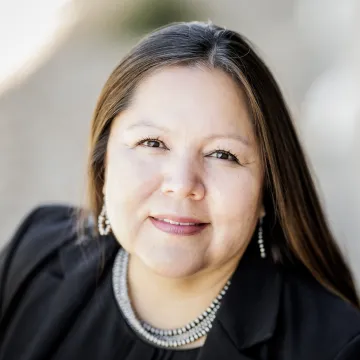
“The Indigenous DataSET program is important for researchers who will work with Indigenous communities to enhance their ethical knowledge and promote more equitable science practices. I enrolled in this program because I want to enhance how research is done when working with tribal communities.”
Dr. Running Bear hails from St. Michaels, Arizona on the Navajo Nation. She received her Bachelor’s in Psychology from Brigham Young University and her Master’s in Special Education from UArizona before taking a position as an early childhood special education teacher, which she held for more than a decade. Dr. Running Bear then went on to get her Ph.D. in Curriculum and Instruction with a focus on Culturally and Linguistically Diverse Exceptional Children from Northern Arizona University in the spring of 2023. Her research focuses on evidence-based practices for teaching Indigenous children with disabilities.
Melissa Wheeler (Diné/Navajo)
Ph.D. Candidate in Combined Counseling Psychology; Predoctoral Intern at Southwest Behavioral Health & Services
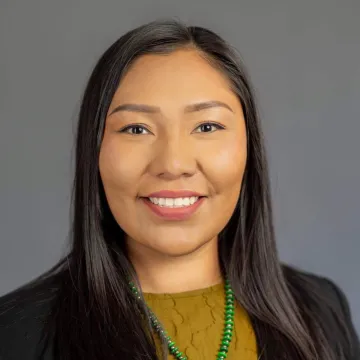
“As an interdisciplinary researcher, I am confident this program will provide an exceptional opportunity to connect my extensive background in mental and behavioral health with tribal research and data governance. Through this program, I am motivated to make an impact to address health disparities that disproportionately affect Indigenous communities.”
Ms. Wheeler is from Round Rock, Arizona, on the Navajo Nation. As an interdisciplinary scholar, her research focuses on racial/ethnic minority mental and behavioral health, health disparities, substance use prevention and Indigenous community-based participatory research intervention and prevention methods. Her goals are to serve rural Native American communities while also teaching in the postsecondary setting.
University of Arizona
Cherie De Vore (Diné/Navajo)
Assistant Professor, Department of Chemical and Environmental Engineering; Core Faculty, Indigenous Resilience Center
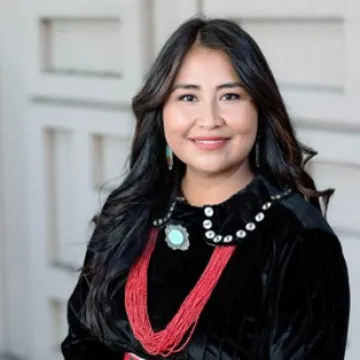
“I navigate this life and learning experience with protocol and order at my center–with family and community in mind. The Indigenous DataSET training/tools empower our Indigenous protocol and are in alignment with the vision I have for my research and for being a good relative.”
Dr. De Vore is from the community of Crownpoint, NM in eastern Diné land. Her clans are Red Bottom People, Atop the Mountain Towering House, Salt People and Tangle People. She received her Ph.D. in environmental engineering at the University of New Mexico and was then awarded an NSF Postdoctoral Fellowship to conduct research at Stanford University from 2020-2023. Her work investigates biogeochemical processes at the interface of water, energy, and health that affect the cycle and treatment of metals and nutrients in the environment.
Austin Duncan
Postdoctoral Scholar, Sonoran Center for Excellence in Disabilities, Department of Family and Community Medicine, UArizona College of Medicine
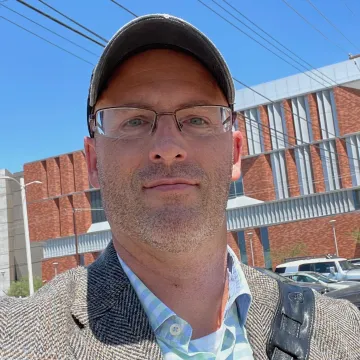
“This fellowship will help me to collaborate equitably, justly, and (most importantly) respectfully with indigenous communities to understand and learn from the ways that they treat those who have diverse bodily and mental conditions.”
Dr. Duncan is a Disability and Medical Anthropologist with the UArizona College of Medicine. As a severe traumatic brain injury (TBI) survivor, he collaborates with other disabled persons in his work to have real and beneficial effects on their lives. With this fellowship, he aims to learn how to collaborate on TBI, “disability” and health equity concerns affecting Indigenous communities to serve their interests rather than academic ones.
Joseph Hoover
Assistant Professor, Department of Environmental Science, College of Agriculture, Life & Environmental Sciences; Faculty Affiliate, Indigenous Resilience Center
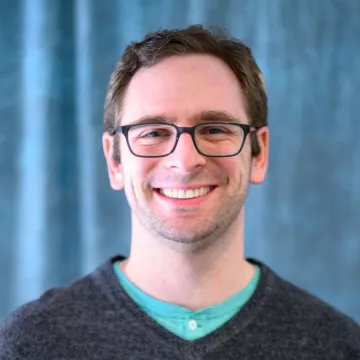
“I am excited to be part of this fellowship program so that I can develop a deeper knowledge and understanding of Indigenous Data Sovereignty. This will help me more effectively train students and partner with Indigenous Peoples to address environmental health challenges and improve health and wellbeing.”
Dr. Hoover’s line of research emphasizes integration of community-engaged research approaches with geospatial technology to address environmental health challenges that Indigenous Peoples confront. He grounds his work using community-engaged research principles and seeks to diminish environmental exposures through innovative community-driven data collection, analysis, and report back models.
Millicent Pepion
American Indian Studies Program
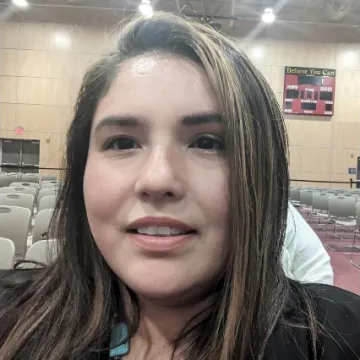
"I’m motivated in understanding the fields of Indigenous Data Sovereignty and Indigenous Data Governance."
For her dissertation, Dr. Pepion examined the connections between Census data for Native populations and Native Voter Suppression. Her surveys included an overview of all 22 Native Nations in Arizona in comparison to county and state statistics regarding history, land, law and representation. Through her participation in the Indigenous DataSET program, she aims to improve her research by immersing herself in the knowledge, tools and perspectives necessary to conduct research and steward data in ways that comport with and for Indigenous Peoples’ rights and interests.
Molly Stothert-Maurer
Associate Librarian (Archivist), Head of Library and Archives, Arizona State Museum
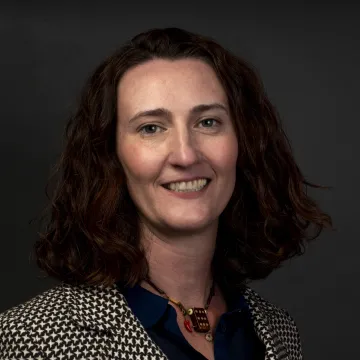
“As an archivist working with Indigenous materials in an anthropology museum context, it is extremely important to ground my work in respecting and supporting the rights and wishes of Indigenous communities. I am excited to learn more about policies and best practices from other disciplines and hope to advocate for policies and practices that take into account the long life cycle of information after the exciting phase of its creation and primary use.”
Ms. Stothert-Maurer is responsible for providing professional leadership and curatorial oversight for a specialized research collection focusing on the archaeology and anthropology of the U.S. Southwest and northern Mexico. Previously, she served as Archivist & History of Science Curator at University of Arizona Libraries Special Collections where she worked closely with collections documenting the Lunar and Planetary Laboratory.
Sign up to receive updates about the 2024 U.S. Indigenous Data Sov & Gov Summit

